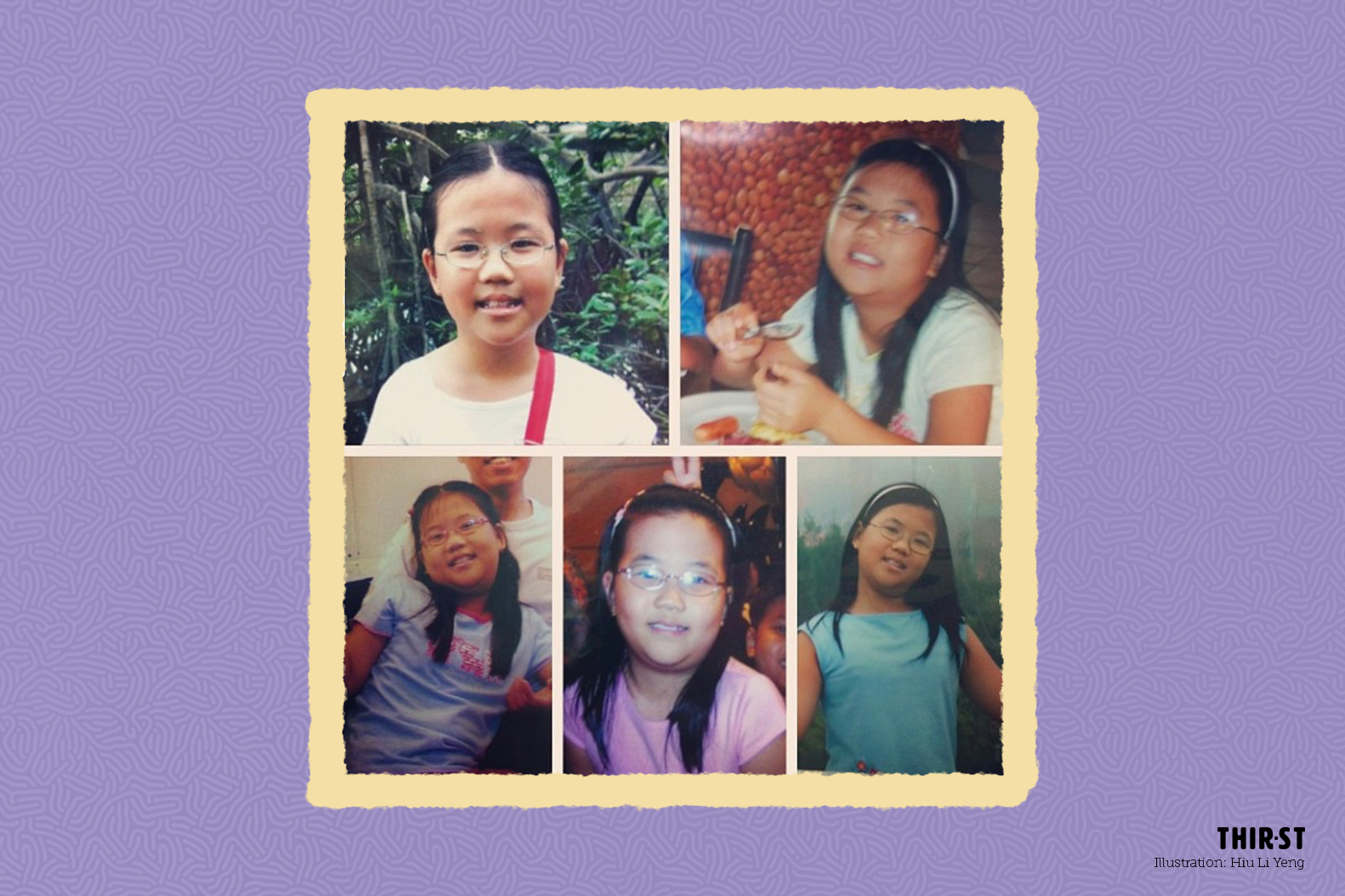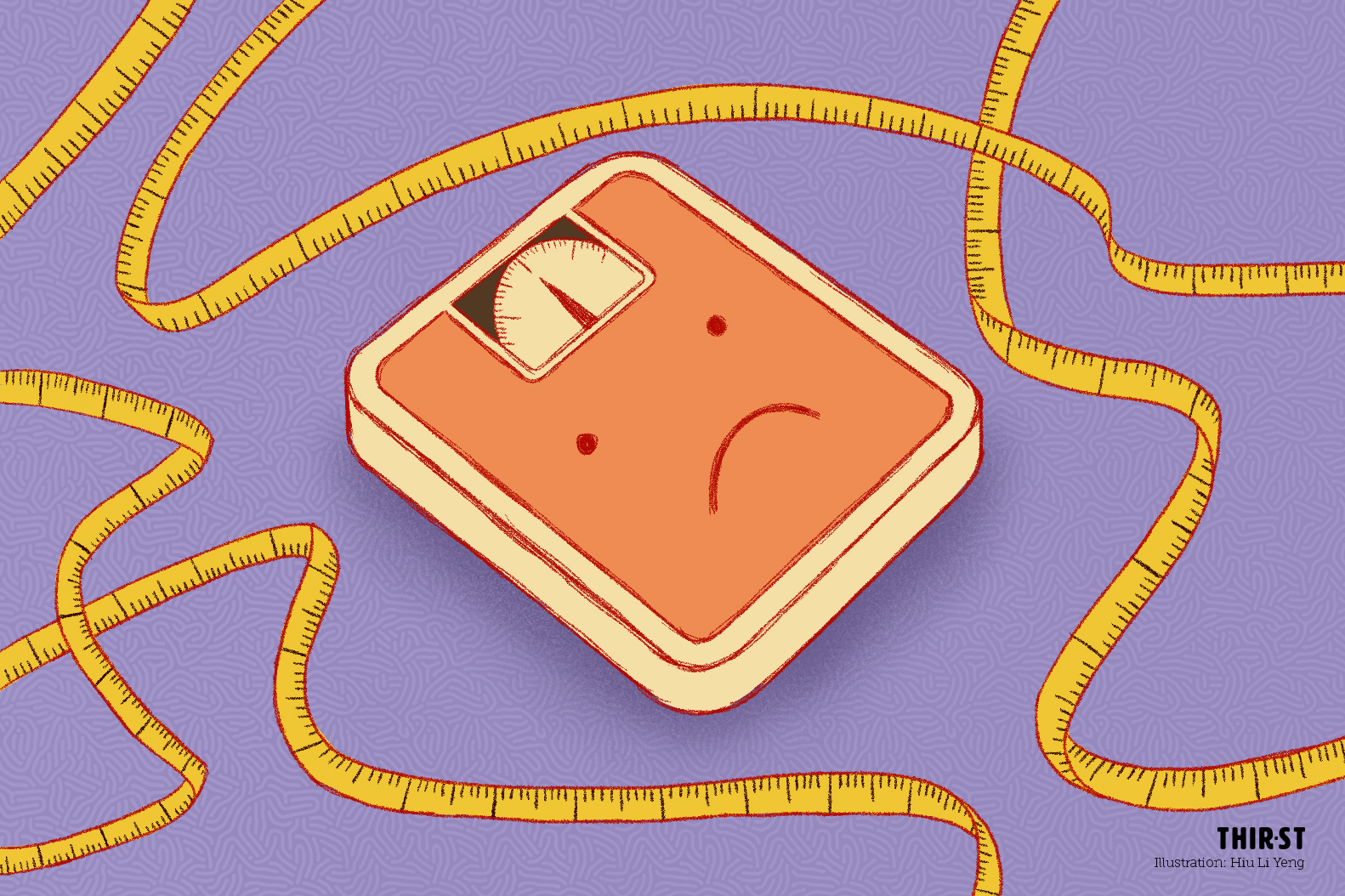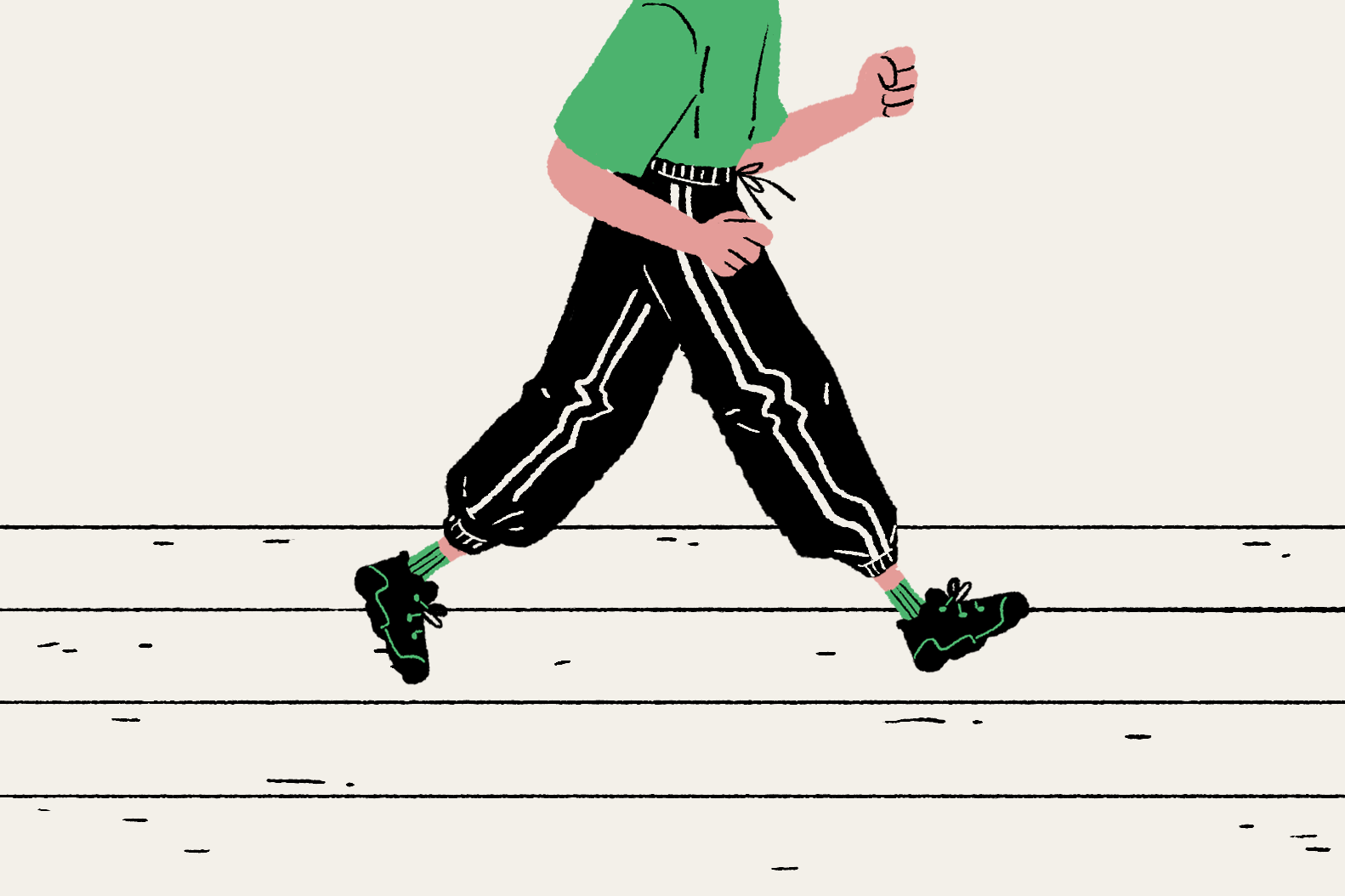My eating disorder (ED) first began when I was stressed with A-Levels, facing family problems and setbacks in my school that made me feel all the more inadequate.
I felt worthless, alone, inadequate and out of control. And I was unable to process those feelings.
Having been bullied when I was younger for being fat, food and exercise had always been something I was particular about.
So when I was 18, food suddenly became the thing that I could obsess over. It made me feel like I had more control.
That was what triggered the beginning of my food restricting and over-exercising. Eventually, it morphed into bulimia.
THE BEGINNING OF THE ED
My family struggled to communicate with me because anything they said could lead to a sudden outburst from me. They were unfamiliar with what it meant to be mentally unwell.
At the same time, I struggled with having all these thoughts running through my head.
- Didn’t I know God was enough for me?
- Wasn’t I provided for?
- What more could I want?
- I don’t have the right to be depressed.
- I don’t have the right to be struggling with an ED.
Yet I was struggling. And I didn’t know how to cope. There were waves where I felt like I couldn’t do anything but cry. I would sleep 10 hours a night and take naps in the day but still feel tired.
Bulimia began to take over my life. I had binge cycles that felt like out-of-body experiences. Every time I bent over the toilet bowl, the food would automatically come up and my mind would be blank.
My heart would be racing and I would feel so anxious until I was done purging. Then, my heart would stop racing and I would suddenly feel exhausted. My body would shut down and I would need to sleep.
The cycle would then repeat the next day, every day – even multiple times a day. I didn’t know how to live.

Lying on my bedroom floor after an episode one day, I concluded that I couldn’t live this way anymore. How would I get married and have a family if this was controlling my life?
I felt incapable of functioning from day to day, yet I had dreams of a bright future. One that seemed increasingly unattainable as I fell deeper into the ED cycle.
I decided then that I wanted to stop. I wanted to be free. However, it was also then that I realised I could not stop. And that scared me.
Suffering from an ED can be very trapping – half the time I wondered if I was even truly ill.
An ED is also an extremely shameful thing when you are in it. It can feel like the end of the world if anyone finds out.
When I was going through it, it felt like my ED was the centre of my life. I’d go through the motions for everything else.
I would cancel on friends because I didn’t want to eat – or even exercise at 2am because I had dinner and came home late that day.
I cried a lot randomly and couldn’t even communicate with my family properly.
It was a dark time.
HOPE, HELP AND HEALING
But even in those dark moments, the thing that kept me going was a little light within.
I had a glimmer of hope that even though God didn’t feel near, I held on to the truth and hope that He had not left me.
As Christians, we sometimes expect God to show up and supernaturally make our problems disappear. But in reality, God’s supernatural ways are often quite natural, and we don’t even catch it.
For me, the “supernatural way” I thought God would work in my life was to take away my bulimia just like that.
Maybe the more I prayed, the less I would feel the urge to binge and purge. Surely God would do that for me to show His power and might right?
But as I went along, I realised that just because He can, doesn’t mean He will. God is far more concerned about my relationship with Him than impressive quick fixes.
I learned that discipleship is not about asking God to take away the storms of life, but understanding what God wants to teach me through them.
So the real “supernatural way” God saved me turned out to be very practical. It was simply in the therapy sessions I attended.

Therapy turned out to be a great help to me in my recovery journey.
I went for therapy for more than four months. That meant regular counselling sessions with a therapist. He was Christian too, so I saw the sessions as a godsend.
What really helped was how my therapist reshaped my perspective on people and God.
I learnt to be more compassionate, to myself and others. I suddenly understood what it meant to have empathy because it was so kindly shown to me.
I challenged the binding thoughts that made me feel like I was constantly insufficient and learnt how to experience my emotions. Experiencing emotions is important. After all, God speaks to us through our feelings all the time.
I began to see people and their struggles in a different light, and they became easier to love. I began to see others a little more like how God sees them, and that slowly helped me to see myself the way God sees me.
Ultimately, therapy helped me understand why I was feeling a certain way, and how to process my feelings so that I didn’t have to turn to bingeing and purging.
I’m not going to lie and say the recovery journey is easy. It has been more than two years since I stopped therapy and I think I am still very much a work in progress.
I know I will never be the same as someone who has never struggled with an ED. For instance, I can’t go on a diet or even contemplate the idea of it because it triggers my bulimia.
And when I get anxious from time to time, I still feel the occasional urge to binge. Food is still very much soothing to me and exercising helps to manage guilt.
I have to be cautious of triggers like weighing myself because it can easily start the cycle again. My relationship with food and exercise is more extreme, and I have to be aware of that.
You are worth much more than you think you are, and you are not alone.
But even though I may never go back to how I was before bulimia, it no longer dictates the way I live my life. Instead, it reminds me of my limits as a person and that in my weakness God is made strong.
Today, my social life is bustling and my relationship with my family is great. I no longer feel guilt for the things I did or did not do, and my past ED no longer controls my emotions and actions like they did before.
I am humbled by what it means to journey with God and am increasingly liberated to live with hopes for my future.
My message for anyone struggling with ED is this: You are worth much more than you think you are, and you are not alone.
May God ignite a light in the overwhelming darkness as you journey into freedom with Him.
- How do you cope with facing difficulties in life?
- Is the way you cope with stress or struggles a healthy one?
- Know of someone who may be going through ED or a tough time? Be an encouragement to him or her this week.









